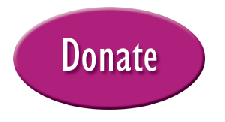The following is the fourth (and final) part of our World Doula Week series, based on a phone interview with Marta Lugo Rodriguez, a new doula with CHASS Center in Detroit, Michigan, and her supervisor, Amy Frank.
Amy: Marta has a gift that she’s also able to communicate in Spanish. So, she is able to help translate for the mom and the dad and the medical providers. That also helps with establishing trust and respect and things like that.
 Marta: My clients’ fears are related to, “not knowing what to do.” They want to know what are the labor signs? When should I leave to go to the hospital? When do I know I’m ready? I had one mom that didn’t even know she needed to pack a bag to take to the hospital. She just thought she should go to the hospital and that was it.
Marta: My clients’ fears are related to, “not knowing what to do.” They want to know what are the labor signs? When should I leave to go to the hospital? When do I know I’m ready? I had one mom that didn’t even know she needed to pack a bag to take to the hospital. She just thought she should go to the hospital and that was it.

La Leche Materna Es la Mejor/ Mother’s Milk is Best
Reproduction of original silkscreen by Jane Norling
Now, the biggest fear, and I’m saying this in regards to the community we serve, who are Hispanics, is the language barrier. Once they are at the hospital, they are unable to express themselves, even to say, “I have pain.” If they have, to what extreme? But they don’t know how to tell you or how to explain it. That dialogue is really hard.
During my second birth, unfortunately, mom had a C-section. She just kept saying it in Spanish: “Tell them I don’t want a C-section. I don’t want an epidural.” She didn’t know what the word “epidural” was but, she knew she didn’t want that needle in the back. I hope you can understand what I’m trying to say; they have fear. You can see it in their eyes. Not being able to communicate correctly. It’s difficult. It’s a fear that is there before the contractions start.
So, being a doula and being there, it’s an advantage for the patient and the nurse. They know someone can speak for them, or advocate. A nurse will come into the room, say things in English and they don’t have translators on that floor. So, at that point, we are there to help. This is a great moment for them both and less stress for them, as well.
I do this because I believe in what I do and I believe in good outcomes for all. I get the most joy and satisfaction doing what I believe in.
Editor’s note: While preparing these blog posts based on Marta’s interview, I tried to put myself in her place. I understand why she loves her work and realize that not everyone could give of themselves in the way that is required to be a doula. She and all the community-based doulas around the country have my deep respect. Thank you, Marta, for sharing your story.
– Anna Labedzki Valenti
It’s World Doula Week!
Is there a doula in your life you want to thank?
Edited by Anna Labedzki Valenti, Intern at HealthConnect One; Interview by RoiAnn Phillips, Communications Manager with HealthConnect One; Artwork from the Chicago office of HealthConnect One


